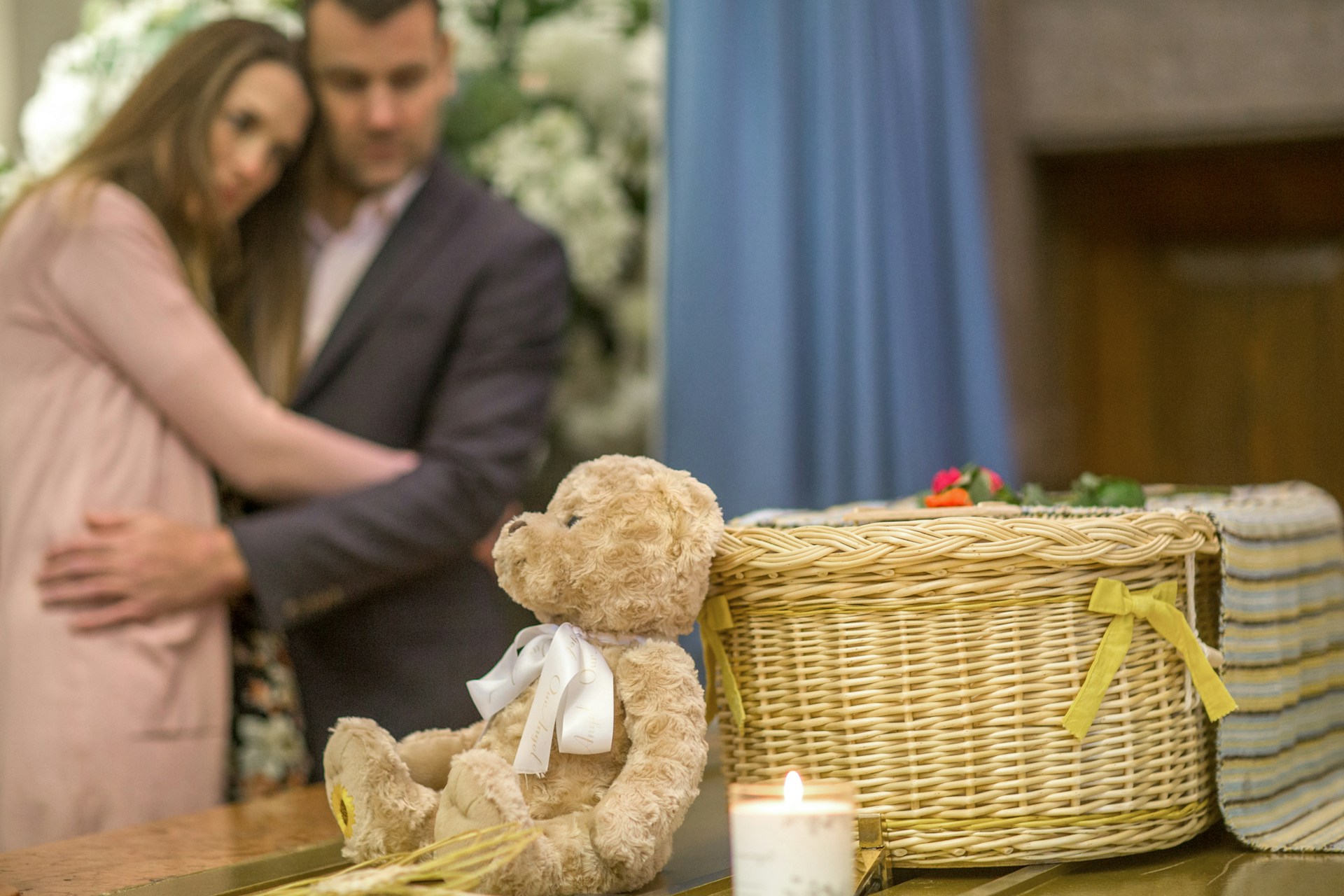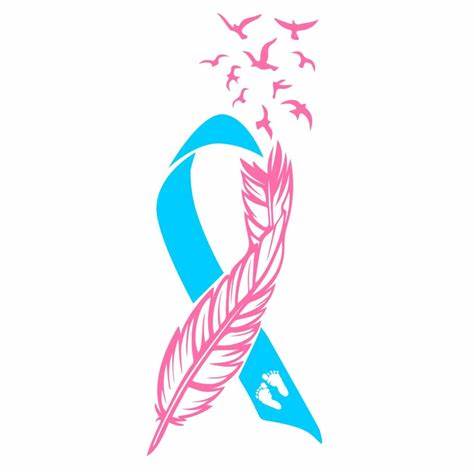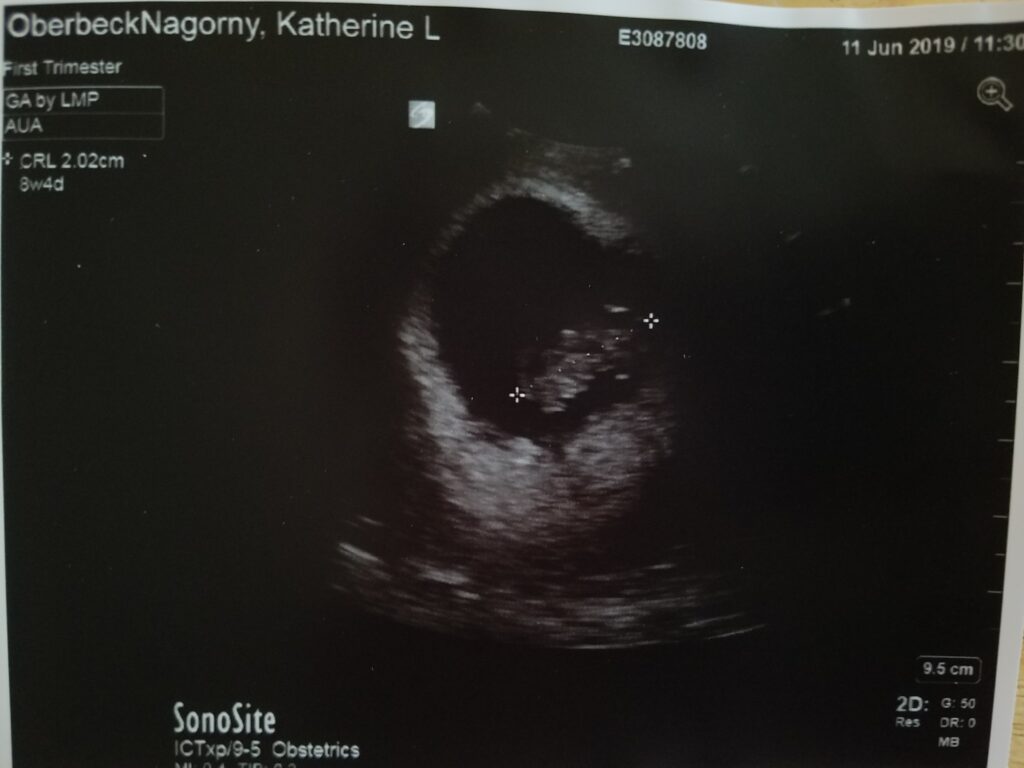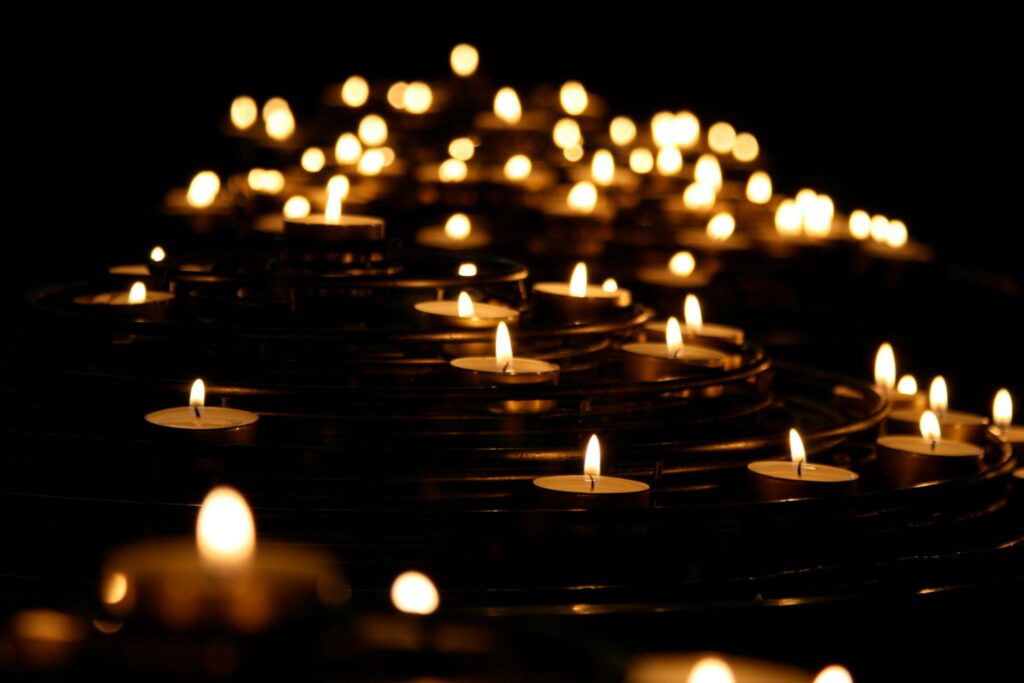
I Am 1 In 4 – Pregnancy and Child Loss

The loss of a pregnancy or child is a heart-wrenching experience for parents and the whole family. October is pregnancy, infant, and child loss awareness month to help people who have gone through this experience bring attention to a topic that is still very much stigmatized in today’s society.
I was only 19 years old when I lost my first child through miscarriage. It was an unplanned pregnancy but that didn’t lessen the emotional toll that it took on my partner and I. I was 12 weeks along when I felt the cramping and began bleeding. However, that was only the beginning. Even over 20 years later, I remember what it felt like and the wave of shame, sadness, regret, and guilt that losing that pregnancy brought. To this day, I wonder what my child would have been like. The what ifs are never ending no matter how many years pass.

History
President Ronald Regan first declared October to be Pregnancy and Infant Loss Awareness Month in 1988. Since then, it has spread around the globe and now includes the International Wave of Light on October 15th when everyone who has miscarried or lost a child lights a candle at 7PM in their local time zone in honor of their little angel.
The goal of an awareness month is to help break the silence surrounding miscarriage and child loss. Too often people don’t know what to do or say so they will pretend as if it didn’t happen or worse, pull away from the grieving parents completely.
What is it like?
If you’ve never been through the loss of a pregnancy or child, it may be hard to understand the profound effect it has on the parents and family both physically and emotionally. As someone who has experienced this, I sincerely hope that you never do.
In my case, my miscarriage at 19 was only the first. After multiple losses between 2 and 8 weeks, I became scared to take a pregnancy test for fear of seeing confirmation that I was pregnant only to lose it again. It was easier to not know. The only upside was that when it came time for me to seriously try to have a child, it sped up getting testing and such done to see what the problem might be.
There were no answers.

2019 brought another positive pregnancy test. This time, it was a very strong line at only 2 weeks late. This was different. It was exciting and terrifying all at the same time. Every single day of my 36 week pregnancy had me wondering if it was going to be the last. If I would lose this child like I had lost my others. Call it PTSD or overthinking but it’s something that many other women have also dealt with after a miscarriage. It’s hard to enjoy your pregnancy when you’re waiting for another tragedy to occur. I didn’t relax or even really feel like things would be ok until I heard my son’s cries as he was born.
Since then, we have had one more loss and even though we already had our son, it hurt just as much as the first time.

How can I support someone who has lost a child?
Before getting into what to do or say, there are a couple things you want to avoid:
- Don’t say “It was god’s will” or “They are in a better place.” This is maddening and hurts no matter how well-intentioned.
- Don’t say “At least it was early” or “You can always try again.” You don’t necessarily know if they had been trying for years or not and this was their version of a miracle.
- Don’t pretend their child didn’t exist. Yes, it will hurt to hear their child’s name but it hurts more when people act as if they didn’t even exist at all.
- Don’t ask them to reach out if they need something or if they need help. That’s one more decision you’re putting on them in their time of grief.
What you can do:
- Express your condolences and continue checking on them. Don’t stop after the first “I’m so sorry this happened to you. You have my sincerest condolences.”
- Send food. Don’t ask if they need something. Send their favorites or if you aren’t sure what that may be, ask someone close to them what it is or even send them a DoorDash gift card so that when they finally do feel hungry, they don’t feel like they are inconveniencing someone to get it.
- Be there and know when to give them space. If you live close, this can be as simple as stopping by and cleaning their house or doing the dishes while they are trying to cope. Put a hand on their shoulder and don’t say a word. If they need a hug, they will lean in and if they do, don’t be the first to let go. Grief doesn’t always need words and neither does a healing touch.
- Send a personalized keepsake or piece of remembrance jewelry to the parents. This should be left to the people closest to them but it’s one way to show that their child is loved and remembered no matter how briefly they were here.
- Spread awareness during October by posting supportive content, sharing information, or sharing your story on social media. You can also wear awareness ribbons. For Pregnancy and Child loss, they are half blue and half pink. These not only show support but can also spark conversations about the topic which are important.
- Participate in events that bring awareness to this topic. Memorial services, walks and runs to raise money and awareness, and lighting a candle for the Wave of Light on October 15th are all ways to show your support whether you have lost a child of your own or just know someone who has.
- Start a program or tradition to honor their child. One example would be to start a program that provides care baskets for parents in your area that have lost a child that include books on grief, blankets, and memorial making items. Another would be to make a donation in their honor every year. Personally, I donate a toy for each child I know who were gone too soon. These toys go to the local children’s hospital or local families in need.

Resources For Grieving Families
If you or someone you know has lost a child, there are many resources and groups available now to help with the grief and trauma that it causes.
- Grief counselors and specially trained psychologists can help process the grief and help give you tools to work through it. Couples therapists may also be needed to help both parents work through it together. Men and women tend to grieve in different ways which may make one or both feel as if the loss is not affecting their partner when it actually is.
- If you’ve been through a child loss, share your story. It helps others not feel so alone in their grief. Listen when they want to share about their loss as well. Talking about what happened and your child is more cathartic than people realize.
- Facebook and local grief groups specializing in losing a child. Loss of a child can make people feel very alone and it helps to see that there are other people who have been through the experience and came out on the other side. One of the biggest things that helped me personally was hearing others who had had multiple losses talk about how they went on to have successful pregnancies with healthy babies.
Groups such as Pregnancy Loss Support Program (https://www.pregnancyloss.org) can help you find resources that are local to you along with connecting you with others who have been through similar experiences.
Conclusion:
Pregnancy and child loss doesn’t need to be a taboo topic. It’s time we began discussing this issue and supporting families who have experienced a loss. Help them feel seen and heard, making sure no one forgets their child.
In loving memory of my son Michael, nephew Cole, nephew Alex, cousin Jordan, Isla, Bobby, and those who were unnamed.
If you have lost a child or know someone who has, please share your story or what helped you get through the darkest times. You never know who else may need to hear those words.
- Tags: baby, child, child loss, loss, miscarriage, pregnancy, stillbirth





